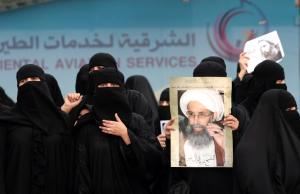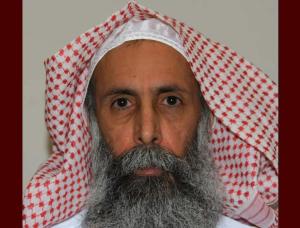By Sam Wilkin
DUBAI (Reuters) - Saudi Arabia's execution of a leading cleric from the Shi'ite Muslim minority drew protests from around the world against the ruling Al Saud family and threatened to further intensify a wave of sectarian conflict in the Middle East.
Lebanon's Supreme Islamic Shi'ite Council called Saturday's execution of cleric Nimr al-Nimr a "grave mistake", and the Hezbollah group termed it an assassination as Shi'ites took to the streets in protest from Tehran to Kashmir.
Saudi Arabia executed 47 people including Nimr, whom the government accused of inciting violence against the police. His supporters, however, said he was a peaceful dissident who advocated greater rights for the kingdom's Shi'ite minority.
Scores of Shi'ites in Saudi Arabia's Eastern Province marched through Nimr's home district of Qatif shouting "down with the Al Saud", and several hundred gathered in nearby Bahrain, a Sunni-ruled island kingdom allied to Saudi Arabia.
In Iran, a Shi'ite theocracy and rival to Saudi Arabia, state media channels carried non-stop coverage of clerics and secular officials praising Nimr and predicting the downfall of Saudi Arabia's Sunni ruling family.
View gallery

Saudi Shiite women hold placards bearing portraits of prominent Shiite Muslim cleric Nimr al-Nimr du …
Shi'ite leaders in Iraq, Kuwait, Lebanon, and Yemen also warned of reprisals, in a signal that sectarian conflicts across the Middle East could be further inflamed.
As a Saudi-led coalition announced the end of a ceasefire in its war with Yemen's Houthi movement, the Houthis said Nimr had been given a "mock trial".
In India, hundreds of Shi'ites demonstrated in the Muslim-majority northern province of Kashmir, where one protest organizer said the charges against Nimr were "baseless".
TERRORISM CHARGES
Three other Shi'ites were executed alongside Nimr, but most of the convicts were jihadists linked to al Qaeda, a radical Sunni group that regards Shi'ites as heretics and has often targeted them in its attacks.
View gallery

A Bahraini anti-government protester holds up a picture of Saudi Shiite cleric Sheikh Nimr al-Nimr, …
Shi'ite groups across the region accused Saudi Arabia of using terrorism as a pretext to execute Nimr, a figurehead for the kingdom's restive Shi'ite population who called for peaceful protests in sermons broadcast online.
The Saudi government says Nimr ordered his followers to attack the police, and was to blame for a series of shooting and petrol bomb attacks that killed several policemen during anti-government protests in Qatif in 2011-13.
Lebanon's Hezbollah, however, said Nimr had "demanded the squandered rights of an oppressed people", and condemned Riyadh for executing him and other Shi'ites alongside "terrorist bands". "Nimr resisted oppression with words," the group added.
In Beirut, Shi'ite shopkeeper Abu Ali Dimashq said he hoped Nimr's death would prove "a victory against the Al Saud family, because this is the beginning of their end, God willing."
Iran's Supreme Leader Ayatollah Ali Khamenei added his voice to a chorus of condemnation by tweeting a tribute to Nimr. His website also carried an image comparing Saudi Arabia to Islamic State, as other Iranian officials accused the kingdom of supporting terrorism.
View gallery

Nimr al-Nimr, executed in Saudi Arabia, was a charismatic religious leader who delivered fiery speec …
"The Saudi government supports terrorists and takfiri (radical Sunni) extremists, while executing and suppressing critics inside the country," foreign ministry spokesman Hossein Jaber Ansari said.
The wave of condemnation could harm Saudi Arabia's efforts to form an Islamic alliance against the jihadist militants of Islamic State. Riyadh announced the coalition last month, but did not include the Shi'ite powers.
Politicians, militias and a prominent cleric in Shi'ite-majority Iraq called on the government to sever ties with its neighbor, just one day after Saudi Arabia reopened its embassy in Baghdad for the first time since 1990.
Iran's foreign ministry had said on Monday it was willing to talk to Saudi Arabia after months of escalating tensions, but any chance of a rapprochement appeared to be derailed as clerics, officials and students lashed out at the kingdom.
(Additional reporting by Angus McDowall in Riyadh, Stephen Kalin in Baghdad, John Davison in Beirut, Fayaz Bukhari in Srinagar, and Noah Browning and Sami Aboudi in Dubai; Editing by Helen Popper)